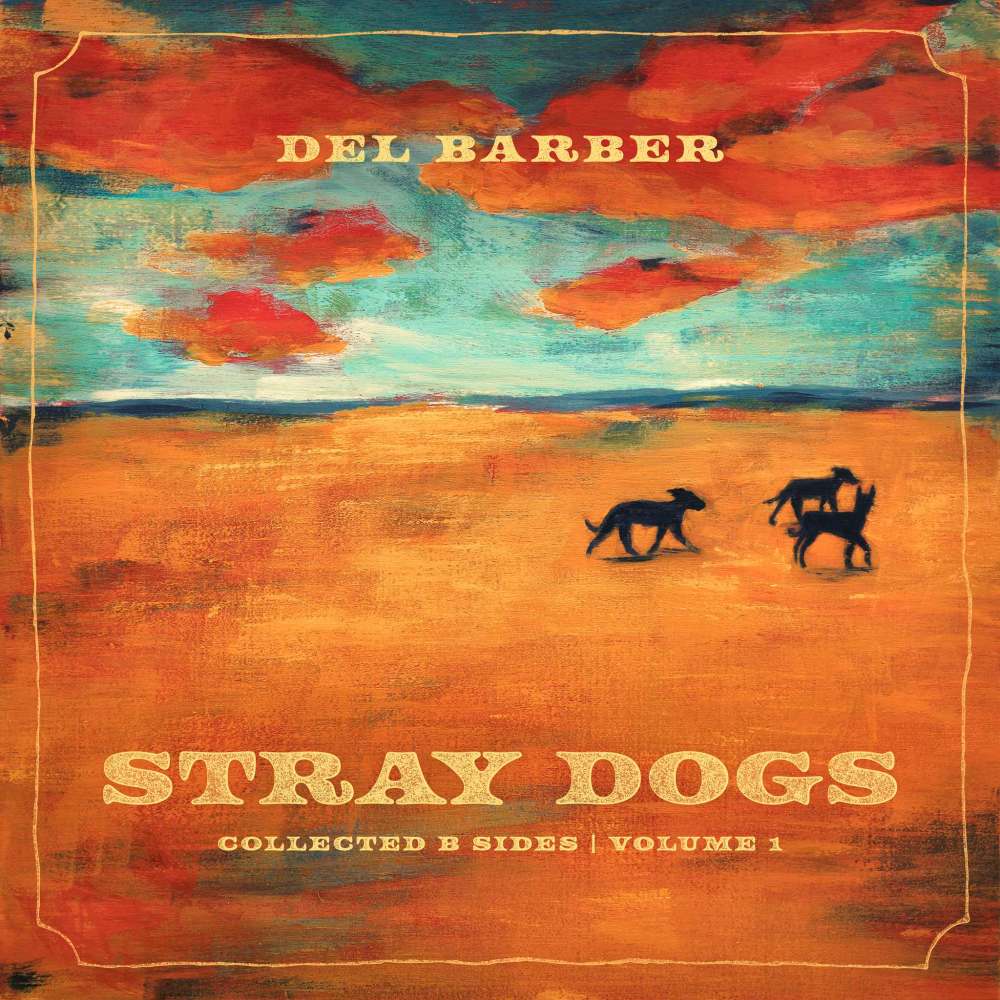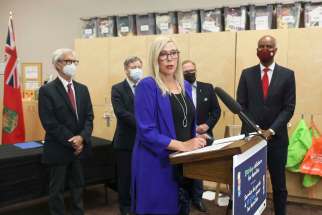Time in a bottle Manitoba folk singer used pandemic to reflect, recharge and now can't wait to tour again
Read this article for free:
or
Already have an account? Log in here »
To continue reading, please subscribe:
Monthly Digital Subscription
$0 for the first 4 weeks*
- Enjoy unlimited reading on winnipegfreepress.com
- Read the E-Edition, our digital replica newspaper
- Access News Break, our award-winning app
- Play interactive puzzles
*No charge for 4 weeks then price increases to the regular rate of $19.00 plus GST every four weeks. Offer available to new and qualified returning subscribers only. Cancel any time.
Monthly Digital Subscription
$4.75/week*
- Enjoy unlimited reading on winnipegfreepress.com
- Read the E-Edition, our digital replica newspaper
- Access News Break, our award-winning app
- Play interactive puzzles
*Billed as $19 plus GST every four weeks. Cancel any time.
To continue reading, please subscribe:
Add Free Press access to your Brandon Sun subscription for only an additional
$1 for the first 4 weeks*
*Your next subscription payment will increase by $1.00 and you will be charged $16.99 plus GST for four weeks. After four weeks, your payment will increase to $23.99 plus GST every four weeks.
Read unlimited articles for free today:
or
Already have an account? Log in here »
Hey there, time traveller!
This article was published 11/08/2021 (1582 days ago), so information in it may no longer be current.
Del Barber calls the COVID-19 pandemic his “enforced sabbatical.”
The country-folk singer says he spent the last 18 months at his farm near Inglis, a small town about 210 kilometres northwest of Brandon famous for its national historic site of five century-old grain elevators.
The time off gave him a chance to look back at the last 10 years of his music career, which includes six albums, three Juno Award nominations and five Western Canadian Music Awards.
He felt he needed to decide whether to keep on writing and touring, whenever the pandemic would allow him or whether it was time go in a different direction.

“Professionally, it was a way for me anyway to reset, to take some time and really look back on more than a decade of full-time touring. Try to figure out if I love it still, if I need to do it, if there’s a market for me to do it. All these questions force the trepidation and fear,” Barber says.
“I just sort of trickled into a career. I thought I always enjoyed it but I haven’t really had time to stop and think about it. This year has given me a chance to sort of reflect on that decade of investment in time.”

The time away from touring and the recording studio also allowed Barber to listen to old demos and sift through notebooks of poems and lyrics he’d accumulated.
He was able to squeeze out some creative juices from those pages and polish some old nuggets during his search to come up with a new record, Stray Dogs: Collected B-Sides Volume 1, which comes out Aug. 20.
Two singles, Meantime and Nothing Left to Find, have already dropped on streaming services.
Barber’s worries whether he’d be remembered after 18 months away from the music business were assuaged after he received letters and messages of encouragement — not to mention a few bucks — from fans. That’s made the decision to return to the road easier, and he begins that new journey Aug. 17 with a gig at Blue Note Park, his first in more than a year.
He also has few dates in Western Canada set up for the fall and has a Nov. 25 date at the Park Theatre on his itinerary.
“I can’t really imagine doing anything else still,” the singer-songwriter says. “I feel so at home working on songs and figuring out ways to present them, trying to compel people into feeling empathy for someone else and my characters.”
Still, Barber has some concerns about returning to the road. His 2020 tour plans, which were to help promote his last album, the Juno-nominated Easy Keeper, were wiped out by the pandemic, and he worries a COVID-19 comeback could put his own comeback on hold again.
“I feel some trepidation, but I’m also starting to look forward a little bit more. Whether that’s a mistake, I kind of don’t care anymore. I have to start planning things,” he says. “It’s a lot of fun to get on stage and sing songs and tell stories to people. That’s a no-brainer.
“(But) I’m not going to really know until I get back out there, sleep in crappy hotels and see friends and missing my family again. But I am excited to confirm that.”
Barber says he got accustomed to writing songs during quiet times on the road, where he’d find inspiration from odd characters he’d meet and strange situations he’d encounter.
“Stray Dogs was a chance… to sort of remember where I was from and what I was writing about. I had completely forgotten about these songs.” – Del Barber
While the pandemic shutdown granted him days and days of time to write, being unable to bump into new people put him in a rut and left him looking at blank pages.
“It was embarrassing in some ways. I thought I couldn’t write songs anymore,” he says.
“Stray Dogs was a chance… to sort of remember where I was from and what I was writing about. I had completely forgotten about these songs. Maybe I wrote a verse or a chorus and that was enough of a jumping-off point.”
Some of those fragments from his past led to some wry observations on life that have reminded Americana music fans and critics of the famous lyrics of giants such as John Prine.
Early in the new easygoing single Meantime, Barber sings, “Smoke puking out of my argument,” the regretful image of a long ago spat.
In Nothing Left to Find, Barber croons along with a mandolin. “Nobody’s selling mercy in this town tonight / Nobody’s got the answers to the questions on your mind.”
‘I used to be so sure of myself in my 20s,” Barber remembers. “(I was a) politically, hard-nosed left-winger. I really thought I had shit figured out, and I had an ego that allowed me to tell other people that they did not, and I wasn’t ready to admit I was wrong.
“(I’m) realizing more and more that’s just not who I want to be. Now especially, being comfortable with not knowing where I stand on certain issues. I’m finding a lot of solace in that, and I’m grateful that I’ve moved past that self-righteous phase, somewhat.”
The 37-year-old says listening and reading the musings and music from his 20-something self was often difficult to face.
“There was a lot of stuff that I cringed at, like a whole pile of cringe-worthy ideas and stuff that I absolutely could barely listen to and barely read. Self-indulgent musings of a 25-year-old,” he says. “It’s a lot of relationship stuff that I just don’t think needs to be hashed out on a record again, at least for me.
“I did not have any trouble weeding out the bad from the good, the wheat from the chaff. There’s a lot of stuff that I was embarrassed by, that I would not want anybody to hear about.”
alan.small@freepress.mb.ca
Twitter:@AlanDSmall

Alan Small has been a journalist at the Free Press for more than 22 years in a variety of roles, the latest being a reporter in the Arts and Life section.
Our newsroom depends on a growing audience of readers to power our journalism. If you are not a paid reader, please consider becoming a subscriber.
Our newsroom depends on its audience of readers to power our journalism. Thank you for your support.







